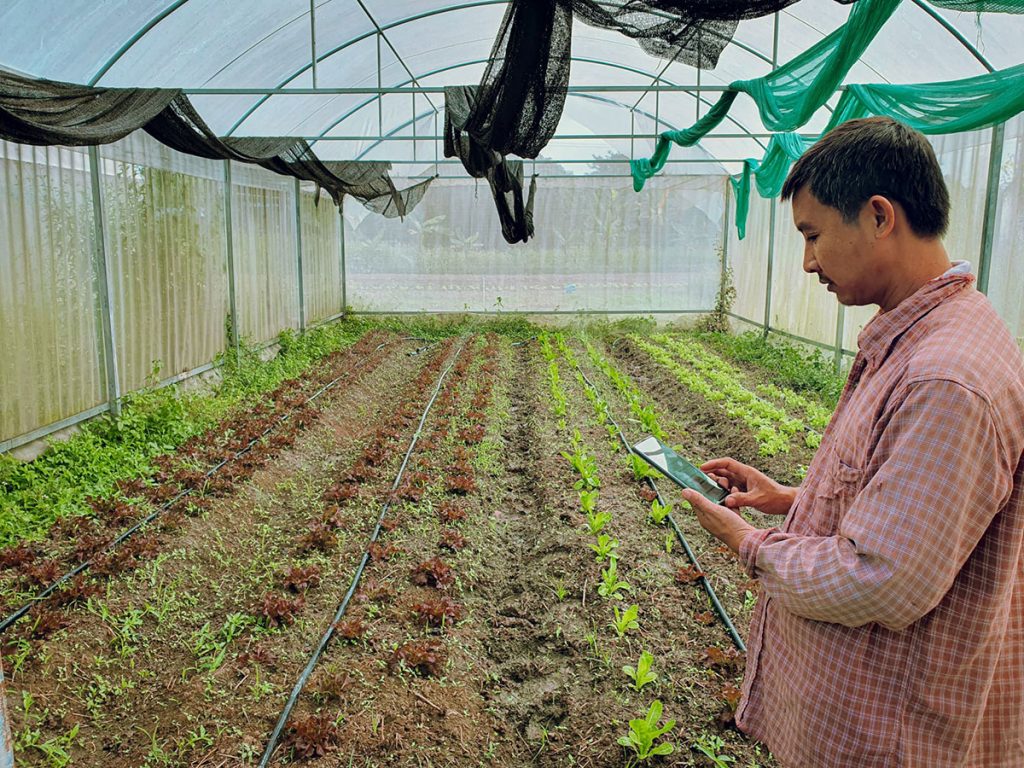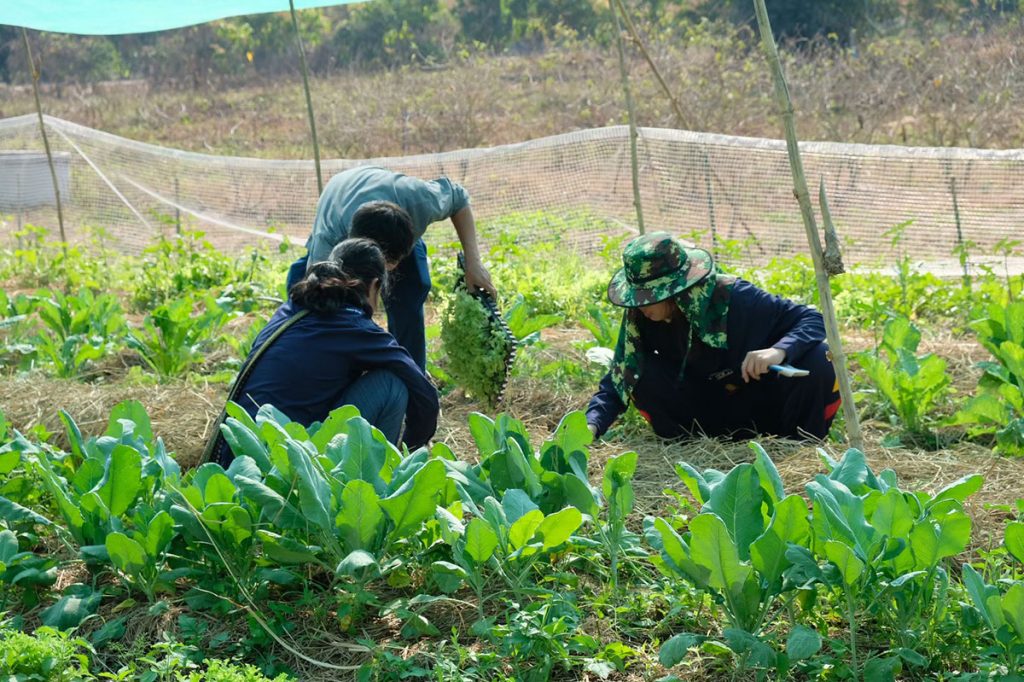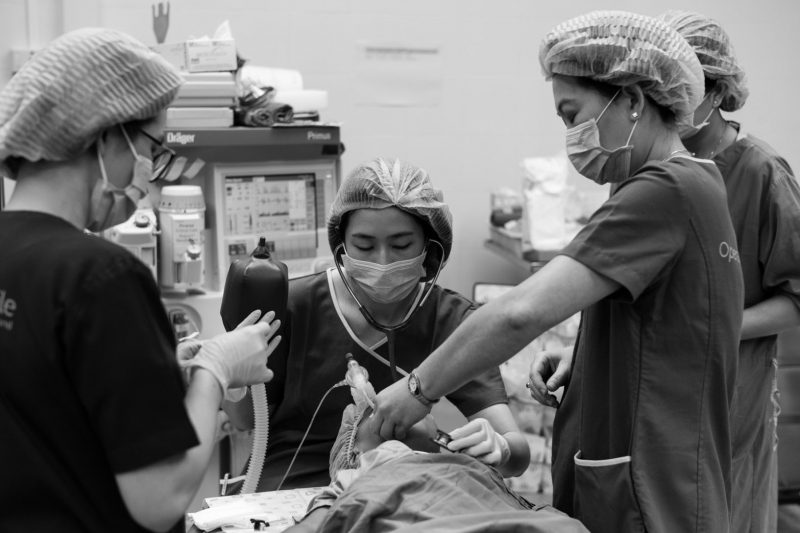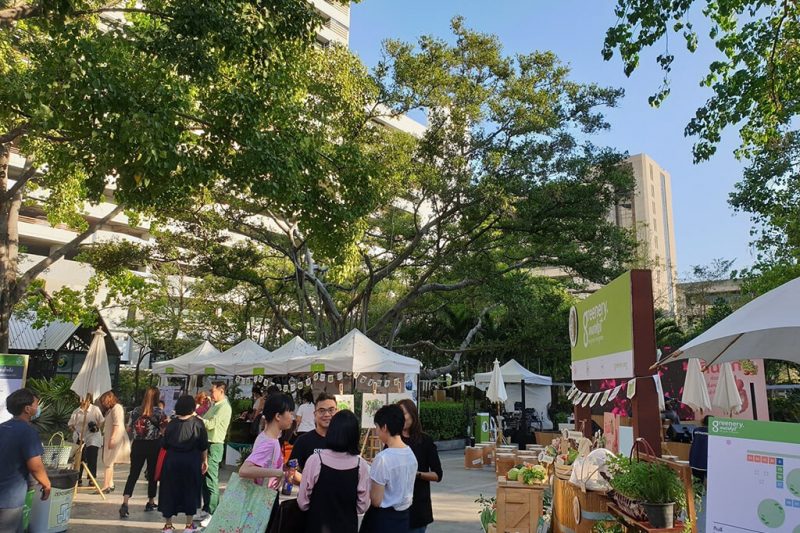CU-ORGANIC CIRCLE:
Organic Circle: Technologies for full-cycle organic farming
Nan community living better by growing crops and raising sheep organically
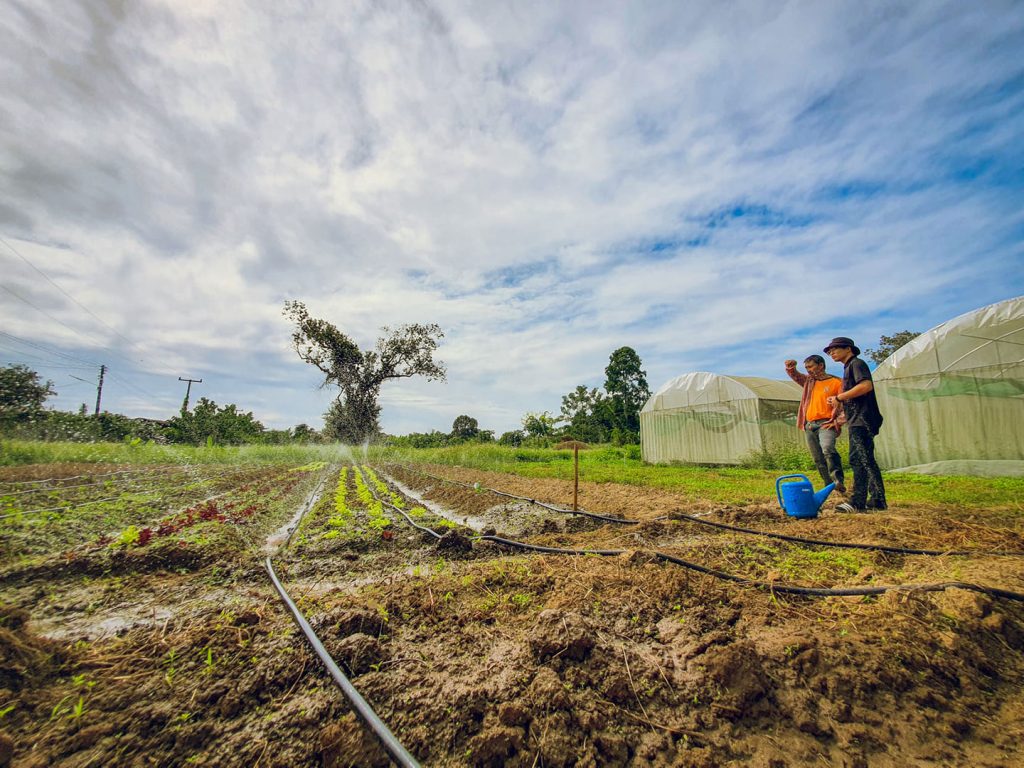
When it comes to organic farming, one should think holistically. First, the land must be pesticide-free, while the water used to grow crops also shouldn’t contain chemicals. But perhaps the most important step in agriculture — especially large-scale, commercial farming — is the use of fertilizer. How can we ensure enough high-quality, organic fertilizer is provided to meet farmers’ needs?
In Nan province, a group of experts and villagers may have found a solution. Farmers from Ban Sammakhi 9 village in Muang Chan sub-district are raising sheep organically to address this problem.
Advised by a team of academics from Chulalongkorn University under the program “Organic Circle: Technologies for Full-cycle Organic Farming”, 25 participants realized they could earn an income not only by growing organic crops, but also from raising sheep — the latter being in demand and selling at high prices on the market.
“Farmers receive training in raising sheep. It’s a low-cost activity since there is no need to buy animal feed. Farmers can find grass or other edible plants; it’s an efficient use of local resources, too,” explains Winai Kaewlamun, an assistant professor at the Chulalongkorn University School of Agricultural Resources.
“Sheep manure can be turned into fertilizer, which in turn can be used for growing vegetables and other crops. This leads to a cycle that uses available resources in a cost-efficient and environment-friendly way.”
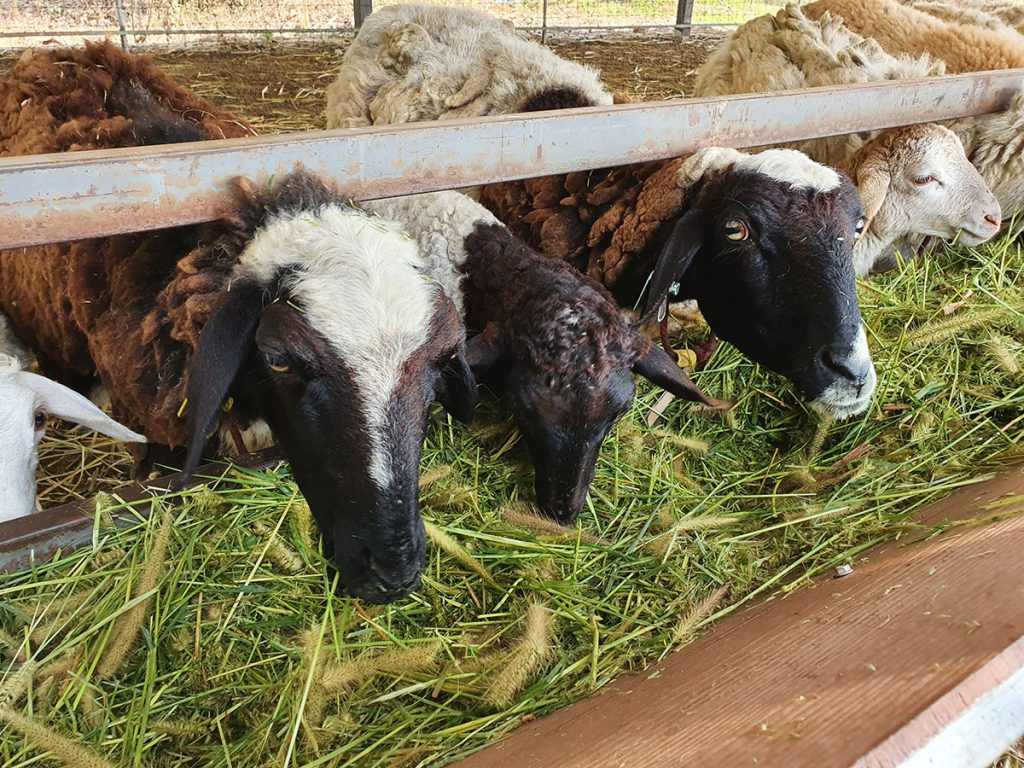
Nan has important water sources, yet its residents rarely get to make use of them as the streams run into the Chao Phraya River. Instead, farmers have little alternative but to grow corn or raise livestock. However, over a period of time, the maize crops cause damage to the soil and forest lands in many parts of the province.
Organic vegetables and sheep farming, therefore, provide alternative paths for farmers that could supplant the usual maize plantations on local mountain slopes. This could not only help restore forest areas and reduce soil damage, but provide a better income for farmers as well.
Kwanpracha Wangsanit, a farmer taking part in the Organic Circle program, shares his excitement about the project. At the local level, witnessing an academic institution such as Chulalongkorn University join with the state and private sectors to bring new technologies into use is novel.
“There are 25 participants in this pilot program and many more local people waiting to see our results,” he said excitedly.
Farmers can learn new knowledge, including marketing techniques or organic farming processes — which some farmers still regard as a pipe dream — or how technologies can be used to reduce their workload. In the end, those taking part are able to show others that the skills learned can be applied in real life.
The same can be said of sheep farming: while it is viewed as a new practice, the program’s personnel make it easier by lending a helpful hand.
“During the dry season, sheep feed on grass and fermented corn, for which we have a dedicated plot of land. Mentors are providing advice to farmers before we go on and raise these sheep on our own,” Kwanpracha adds.
While some sheep have had health problems, veterinary students and teaching staff are around to help. Farmers as well as others interested in raising sheep are allocated three sheep per person. There is one condition, however: within the following year and a half, recipients must give three lambs back, in order to create a circulation of resources and allow new participants to benefit from the same opportunities as they did.
Dai Saengduangkaew, 53, has grown maize for over 20 years. Although it earned him an acceptable income, his crops required more than 100 liters of chemicals each year, exposing him and his family to toxic substances. Dai’s wife became sick as a result and the family spent tens of thousands of baht in medical fees, the towering sum adding to the debt already accumulated through corn farming.
When Dai switched to raising sheep through the Chulalongkorn University program, many of his neighbors were skeptical. There is no market for lamb and mutton, they warned. However, once Dai tried cooking the meat and serving it to others, eating mutton became a tasty habit.
“Years ago, we had plenty of cattle in our fields. Nowadays, there are only seven cows left. Where would we find enough meat to eat?” Dai says, explaining his decision to try something new. He believes there will soon be a market for mutton and once that market grows larger, villagers will be able to stop growing corn.
In the past, growing corn was considered the only way out for impoverished farmers, who quietly accepted the fact that they would come in contact with poisonous chemicals, and go into debt buying them. It seemed farmers in Nan were trapped in a vicious cycle. However, less than a year ago, after Dai started growing organic crops and raising sheep, he saw his debt declining little by little and his family in better health than ever before.
“Raising sheep takes up little space. You also don’t need much grass to feed the animals,” he says. His future seems brighter as a result. He is now confidently making plans to transform his 17-rai land plot into a sheep farm, allowing animals to roam freely.
“I received three female sheep. If I had 30, I could have 60 lambs and sell them for 2,000 baht each. I could earn a good sum each year,” he adds. While he still grows corn, he now does so organically and uses his harvest to feed his sheep and other livestock.
Where growing organic vegetables is concerned, the most important problem appears to be marketing. However farmers and program personnel team up to plan ahead and sell their vegetables, earning 4,000 to 5,000 baht that circulates continually in the project’s budget.
As well, the Organic Circle makes good use of technologies from the early stages of the organic farming process, when the land plot is prepared to be used. Before farming can begin, Asst Prof Winai explains that microorganisms are introduced to dissolve any chemical residue in plots belonging to participants. This is an essential step to prevent organic crops from being contaminated by pre-existing materials. In addition, these microorganisms allow minerals in the soil to be better absorbed by the crops.
Later in the farming process, biological technologies rather than chemicals are employed to prevent bacteria and diseases from harming the crops, while a watering system using sensors helps to reduce human labor. Biological control is also preferred over chemicals in ridding vegetables from bacteria.
The center hosting the Organic Circle program has become a public space dedicated to learning and agricultural knowledge. It has opened new opportunities for farmers and students as well as encouraged debate and exchange among local residents, fostering the sharing of technologies and a healthy learning environment.
“We want people to see how traditional farming, where people simply follow what everyone else is doing, is transformed into smart farming, with systematic planning involved,” says Asst Prof Winai.
Furthermore, the program has led to the creation of a network of people from different faculties within Chulalongkorn University, as well as in the local community and others. This in turn results in the integration of varying types of expertise, all aimed at solving problems and developing full-cycle organic farming.
“Another important aspect of this project,” he stresses, “is that it isn’t just Chulalongkorn University’s doing. It represents cooperation with the National Innovation Agency and local bodies, and this leads to sustainability.
“We aren’t giving unconditionally, but we are doing together; it’s similar to building a puzzle.”
Currently, farmers are raising and breeding the sheep they have received. But soon enough, their network will expand as more people are allocated sheep. According to Asst Prof Winai, “it may only be the beginning but we are confident that we will achieve growing results in the future.”
The Organic Circle: Technologies for Full-Cycle Organic Farming is a cooperative program between the following partners:
- School of Agricultural Resources, Chulalongkorn University
- Faculty of Science, Chulalongkorn University
- Faculty of Engineering, Chulalongkorn University
- National Innovation Agency
- Joko Learning Center, Muang Chan sub-district, Phu Phiang district, Nan province
- Community Enterprise for Organic Vegetable Farmers, Ban Sammakhi 9, Muang Chan sub-district
- Faculty of Veterinary Science, Chulalongkorn University
Coordinator:
Asst. Prof. Dr. Winai Kaewlamun
Tel 081-130-0327,
email winai.k@chula.ac.th
BY
School of Agricultural, Chulalongkorn University
Faculty of Veterinary Science, Chulalongkorn University
Faculty of Science, Chulalongkorn University
Faculty of Engineering, Chulalongkorn University
Related articles:
Others
Returning Smiles to the Community
Chula medical volunteers treat cleft lip and palate cases nationwide

